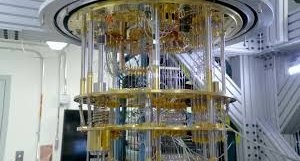
Quantum Computing and Its Disruptive Nature
What is quantum computing and why is it so disruptive? What exactly is quantum computing? Quantum computing exploits the bizarre capacity of subatomic elements to be in various states at any time.
If Albert Einstein is to be asked about quantum mechanics, his simple response to describe it is "spooky" because of the superposition property that enables them to have a one and zero value simultaneously. Moreover, the subatomic particles have the capacity to pass through any form of barriers. It is this quantum mechanics principle that is currently being utilized to create an innovative set of computers that can tackle the most complex logical issues, and expose all computerized vaults. This action can be accomplished only within seconds of computations. If such action is performed on traditional computers, it will take years to complete the process.
Why is quantum computing disruptive? It presents a number of advantages because of the dramatic advantages it promises over present-day computers.
In the field of healthcare and medicine, quantum computers will permit the development of complex reenactments that will assist in finding cures for most non-curable illnesses, such as AIDS and cancer. Quantum computers will enable us to model the thousands of proteins encoded in the human genome and begin to recreate their responses to different drugs or medications. This will pave the way to a radical new level of restorative innovative work and medical research.
A more significant impact of quantum computers is in the advancement of artificial intelligence. The innovation in quantum computing implies replication of the human mind, the most powerful and complex computer known to mankind
The quantum computing power to potentially supersede essentially any cybersecurity measure in light of cryptography could even slow down the implementation of computers themselves. The greatest disruption, perhaps, has come to information encryption methods, as the future relinquishment of RSA as well as Diffie-Hellman cryptography seems inevitable. Don’t worry — classical cryptography is not completely jeopardized. Although certain aspects of classical cryptography would be jeopardized by quantum computing, quantum mechanics also allows for new types of highly secure cryptography.
And since quantum computing is still being worked on, there is still a lot of time to find an ideal opportunity to discover an answer before disruptions ensue.
Managing Director
5yDo you have some more information on quantum computing? I’m enjoying reading about this.
Senior DNS Systems Engineer
6ySo does this mean the day the first quantum computer goes live, all pre-existing cryptocurrencies in existence will instantaneously become worthless?